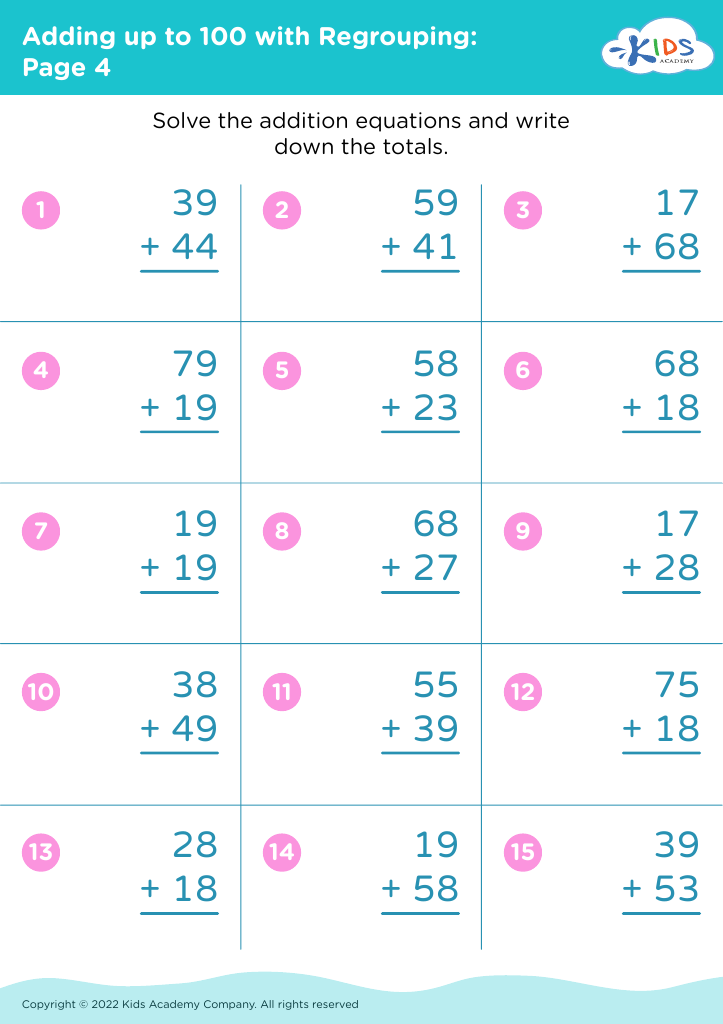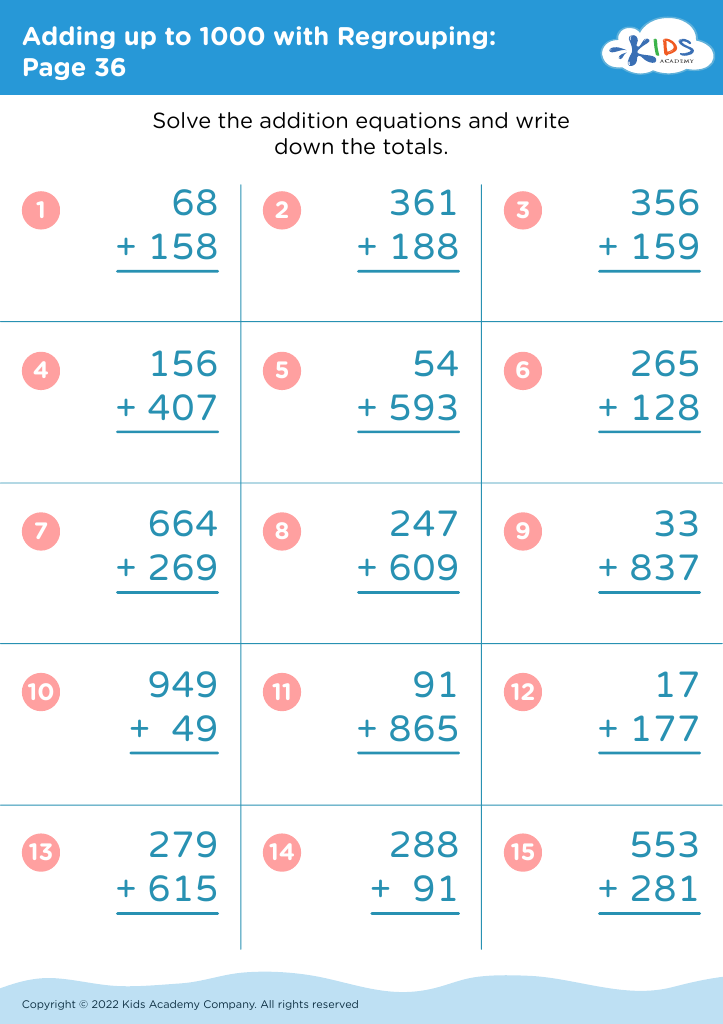Vocabulary Building Addition Worksheets for Ages 3-8
5 filtered results
-
From - To
Our Vocabulary Building Addition Worksheets for ages 3-8 provide a fun and engaging way for young learners to enhance both their math and language skills. These expertly designed worksheets help children practice basic addition while introducing and reinforcing key vocabulary terms. Designed to boost confidence, each worksheet blends colorful illustrations with age-appropriate challenges that keep learners motivated. Ideal for use at home or in the classroom, these resources support cognitive development and lay the groundwork for future academic success. Make math and language fun with our Vocabulary Building Addition Worksheets and instill a love for learning in your child!
Vocabulary building during the ages of 3-8 is crucial for a child's overall development and academic success, and it’s something both parents and teachers should prioritize. At this critical stage, children's brains are highly receptive to new information, making it the ideal time to introduce a rich and varied vocabulary. Expanding a child’s vocabulary enhances their communication skills, enabling them to express their thoughts and emotions more clearly and accurately. This boosts their confidence and social skills, facilitating better interactions with peers and adults.
Moreover, a robust vocabulary fosters cognitive development and critical thinking. It enhances reading comprehension and improves the ability to grasp new and complex concepts, laying a strong foundation for future learning. Strong vocabulary skills are closely linked to academic performance, particularly in reading and writing.
Parents and teachers play pivotal roles in this developmental stage. They can create language-rich environments through activities like reading aloud, engaging in conversations, and providing diverse learning materials. By caring about vocabulary building, parents and teachers invest in the child’s intellectual, social, and emotional growth, setting them on a path to lifelong learning and success. Thus, emphasizing vocabulary building from an early age is key to nurturing well-rounded, confident, and capable individuals.






















